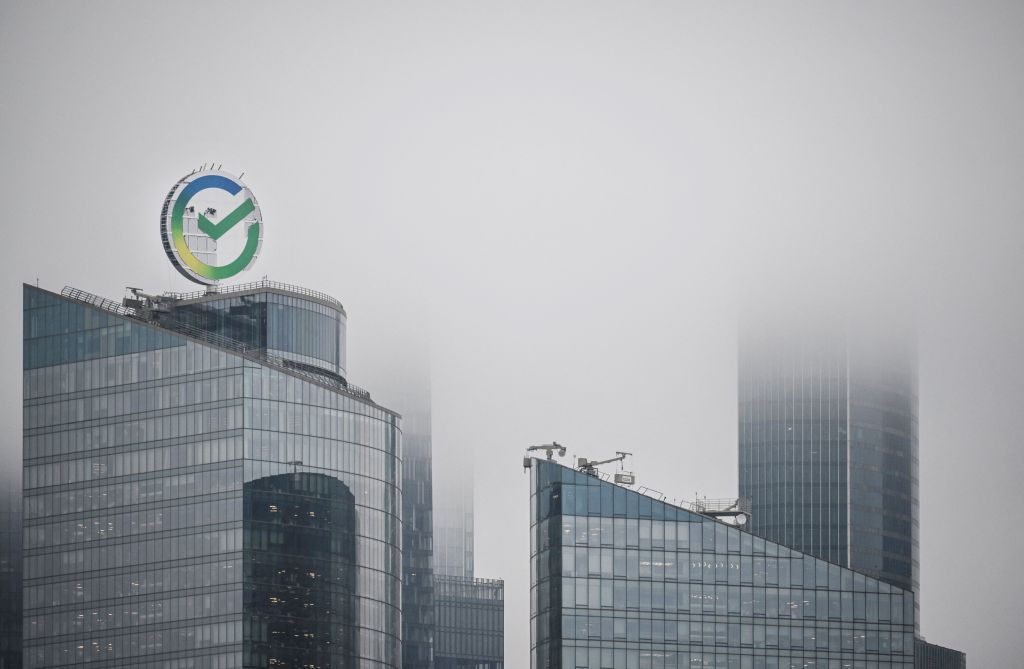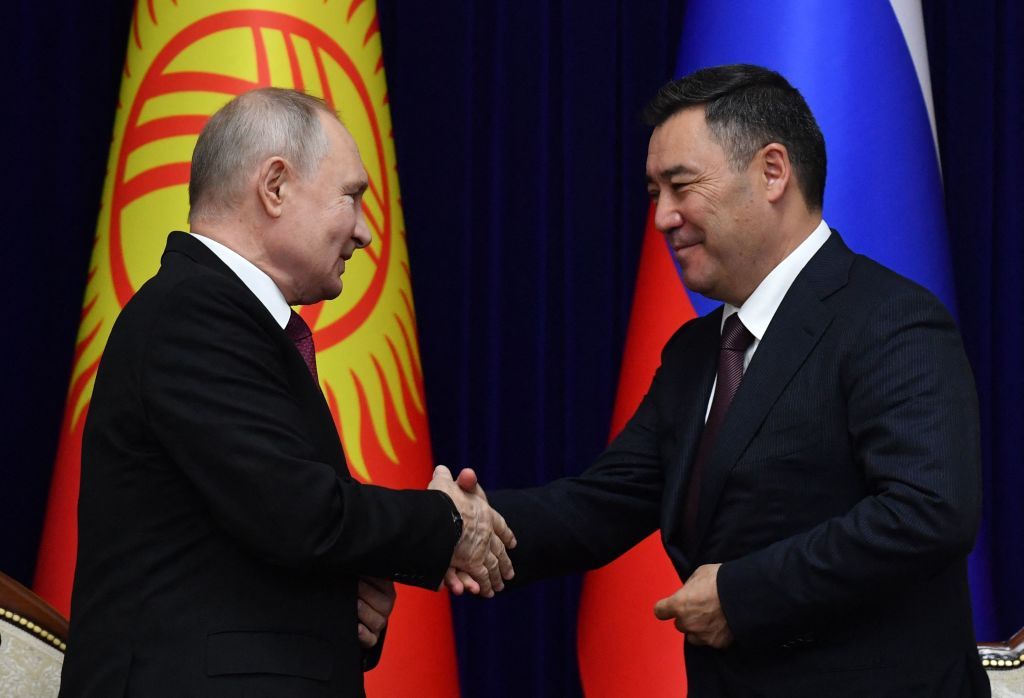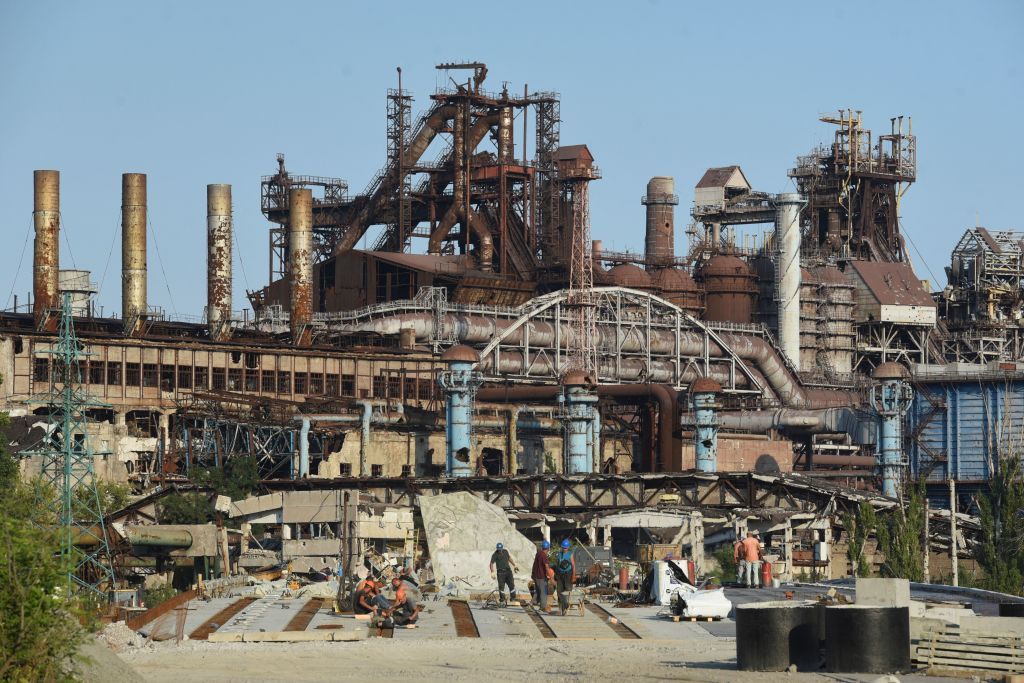Borrell: 'We can't impose sanctions on third countries that help Russia’

Josep Borrell, the European Union's top diplomat, held a two-day visit to Ukraine to meet with a variety of the country’s top officials in what has now become a regular tour of support.
Visiting Ukraine for the fourth time in two years, Borrell has been sharp in urging his domain to do more for Ukraine.
"By the end of the year, the EU will donate Ukraine more than 1 million shells," Borrell told the Kyiv Independent during his visit to Kyiv on Feb. 7, adding that the union's military production has increased by 40% since early 2022.
As of February, EU members gave Ukraine less than half of the pledged amount, initially due in full by March 2024.
Borrell has also pushed for providing multi-billion economic and military aid packages to Ukraine and the increase in sanctions pressure on Russia.
Yet behind the rosy speeches of EU officials, many questions remain unsolved.

Russia's economy recorded 2.6% growth in 2023, according to the World Bank, with Moscow successfully dodging sanctions via third countries. Across the front, Russia's advantage in shells and weapons, produced domestically or procured from abroad, becomes critical.
The EU seems unable to solve both issues fully.
In an interview with the Kyiv Independent in Kyiv on Feb. 7, Borrell spoke about Russia's sanctions' circumvention, the rise of populist groups in Europe, and why, despite the increase in production, Europe still struggles to provide Ukraine with everything it needs to win.
'We can't impose sanctions on third countries'
Despite various independent analyses that hint at Russia's ability to adapt and grow despite sanctions imposed by the West, Borrell is defiant: "No, the Russian economy isn't doing so well," he told the Kyiv Independent.
"This is war (military) Keynesianism," Borrell said, referring to the economic policy that suggests that increased government spending on the military and defense boosts economic growth. The theory, named after British economist John Maynard Keynes, was used to describe the rapid economic growth in Nazi Germany.
Now, more and more officials apply it to Vladimir Putin's Russia.
"The Russian economy is certainly boosted by the war effort, but inflation is really high, the ruble is really down, the income from selling hydrocarbons is also down," Borrell added.
All three arguments have been debated by experts.
Despite inflation in Russia reaching 7.5% in 2023, it's down from 11.8% recorded a year prior. The ruble, kept afloat by Russia's Central Bank interventions, lost only 30% compared to its pre-full-scale war value.
According to the Kyiv School of Economics, revenues from Russian oil exports hit $183 billion in 2023, with the income comparable to pre-full-scale war levels.
According to Bloomberg, over 45% of Russia’s oil exports were managed by a "shadow fleet," built to bypass European and American sanctions. Russia also rerouted its trade routes and sold its hydrocarbons to countries like China and India that are not bound by sanctions.
And it seems the EU has no plan on how to deal with this issue.
"Look, the European sanctions are not extraterritorial, we can put sanctions on our subjects because they are subject to our law, but we cannot impose sanctions on third countries," Borrell said.
Meanwhile, statistics from the Institute of International Finance found that between March 2022 and October 2023, German exports of cars and parts to Kyrgyzstan had risen by 5,500%.
Kyrgyzstan, a member of the Moscow-led economic union, is one of the primary destinations through which military and non-military technology now enters Russia, bypassing EU sanctions.
EU's internal struggle
The EU, a loose union of 27 countries, has enough problems of its own.
Passing new sanctions is obstructed by internal disputes, the increase in military production is slow, and the upcoming EU elections are set to pave the way for an increasing number of populist far-left and far-right Ukraine-skeptic groups to dictate the agenda.
The French National Rally, Dutch Party of Freedom, German Alternative for Germany (AfD), and a variety of others are leading the polls or are in close second in their respective countries.
"I think that support for Ukraine is something that is really widespread among the political spectrum in Europe," Borrell said.
"Polls are polls, we are three months from the elections, let the European citizens think about it," he added. "This is a good occasion to explain to Europeans why the support for Ukraine has to continue."
Russia's war against Ukraine is "a matter of our own security," Borrell said.

Concerning EU security, it's hard not to circle back to the slow production of weapons and ammunition which two years in is still unable to cover Ukraine’s and its own needs.
Speaking in Warsaw en route to Kyiv, Borrell said, "the quickest and cheapest and (most) effective way of increasing our supply of ammunition to Ukraine is to stop exporting to third countries."
In Kyiv, Borrell toned down his assessment yet still promised to deliver as much as possible.
"Before the war in Ukraine, Europeans were having export contracts all around the world," Borrell said. "And certainly now we have to reroute this production in order to give priority to the Ukrainian needs."
"But this can't be done overnight," he added, saying that each member state has to renegotiate its contracts with foreign states and their own industry.













